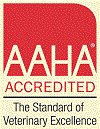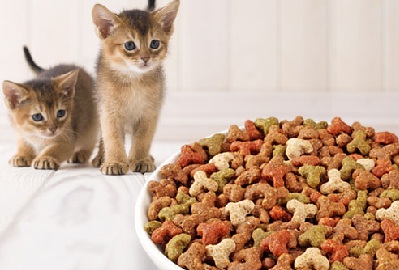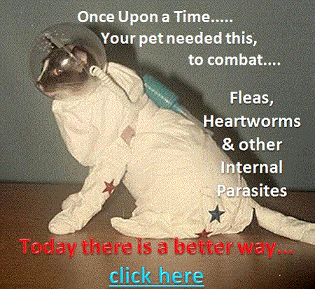Kitten Vaccinations ~ Wellness
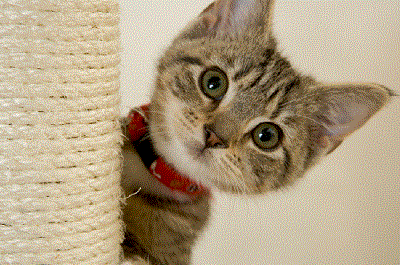 |
Health Care for Kittens
It is exciting when a new kitten is added to the family. Veterinarians at Dunedin Animal Medical Center are committed to the lifelong health of your kitten. Our pediatric wellness program provides important preventative health care serivces designed to give your kitten every chance at having a long and healthy life.
First things 1st
It is critical for your kitten to have an overall wellness-exam as soon as possible.
Your kitten's wellness-exam includes a fecal examination for parasites, the exam will include checking your kitten's mouth, teeth and gums for abnormalities, making sure its ears, eyes, nose and skin are free of infection, verifying healthy weight and temperature (a kitten’s temp should be between 100.5° and 102.5° F), and examining lungs, heart and other internal organs. This first exam is also an opportunity for your kitten to receive its first round of vaccinations, which will help protect it from feline distemper, Rhinotracheitis, calici virus, feline leukemia virus, and rabies (see Kitten Vaccinations below). |
Dunedin Animal Medical Center has two Cat Vaccine brands available
PureVax Cat Vaccine-- The latest Cat Vaccine technology by Merial. This vaccine is considered by many veterinarians to be the safest vaccine available for Cats read more...
Pfizer Cat Vaccine -- Has been given to millions of pets for over twenty-five (25) years, has an excellent safety record, and is more affordable than PureVax Vaccines read more |
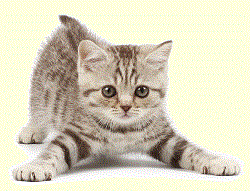 |
Kitten Vaccinations
Vaccinations are administered based on risk assessment. We recommend starting vaccinations between 6 and 8 weeks of age in most circumstances. “Core” vaccines are given to every kitten to help decrease diseases that affect the entire population. They include:
- Feline Distemper
- Rhinotracheitis
- Calici Virus
- Feline Leukemia (We consider this a core vaccination in Florida)
- Rabies
“Non-core” vaccines are only given to pets that are considered “high-risk” for a certain disease. Your veterinarians will discuss your pet’s risk, if any, for these diseases and will tailor a vaccination program for your kitten. we use the AAFP Advisory report (below) when developing a vaccine protocol for your kitten.
AAFP Feline Vaccine Advisory Panel Report on Cat Vaccinations, (AAFP, American Association of Feline Practitioners.)
|
Why Should I Spay or Neuter my Kitten?
Pet Population Control. Between four million and six million pets are euthanized every year because read more.... |
Kitten Nutrition
A high-Quality kitten food may help your kitten and adult cat avoid many medical conditions.
Kitten feeding; Do’s and Don’ts, “Good feline health begins at kittenhood".
DO follow the feeding guidelines. One of the worst things you can do is allowing your kitten to become overweight – it has serious health implications. Make sure the food you offer is specifically formulated for kittens. Your pet will need to eat kitten-formula food until they reach maturity, at about one year of age
DON'T feed your kitten from the table. People food often adds unneeded calories, particularly in the form of fat, and it can contribute to obesity as well as finicky eating.
DO feed your cat at the same time(s) every day; 3 times a day for young kittens, 2 times per day for older kittens, and at least 1 time per day for adults (this amount can be broken into 2 or more feedings per day).
DO make sure there is plenty of fresh water available at all times. |
Feline Heartworm Disease...
Heartworm disease is not just a canine disease. Heartworms affect cats differently than dogs, but the disease they cause is equally serious.
Is easy and relatively inexpensive to prevent and currently, there are no products in the United States approved for the treatment of feline heartworm infection. So, "Prevention is the truly best Medicine" for feline heartworms.
Heartworm preventative can aid in the prevention/control of many other parasites in your kitten. Depending upon which one you choose, current heartworm preventatives can also control fleas and many intestinal parasites.
Your Veterinarian at Dunedin Animal Medical Center will recommend the best heartworm preventative for your kitten.
Read more... http://www.heartwormsociety.org/pet-owner-resources/feline-heartworm.html |
Are vaccinations safe?
Yes. The majority of pets respond well but as with human vaccines, there are some risks. Fortunately, serious side effects are rare. The most common side effects of vaccination are low-grade fever, depression or decreased appetite. These are usually short-lived (24-48 hours), require no treatment and are similar to what people experience after a flu or tetanus shot. Vomiting, diarrhea, itching, difficulty breathing, swelling of the face or extremities and hives are some of the rare allergic reactions that can occur.
After vaccination, if your pet experiences any these allergic-reaction signs immediately call Dunedin Animal Medical Center 727-738-2273. |
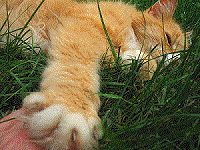 |
Human-Animal Bond -- Under Construction
The human-animal bond is very important to us. We want you to enjoy every aspect of your new pet and call us if you have questions. We can help! We have many brochures with helpful information on a variety of issues, including:
- Socialization
- Dental Hygiene
- Obedience
- House-training
- Behavioral Issues
|
|
|


